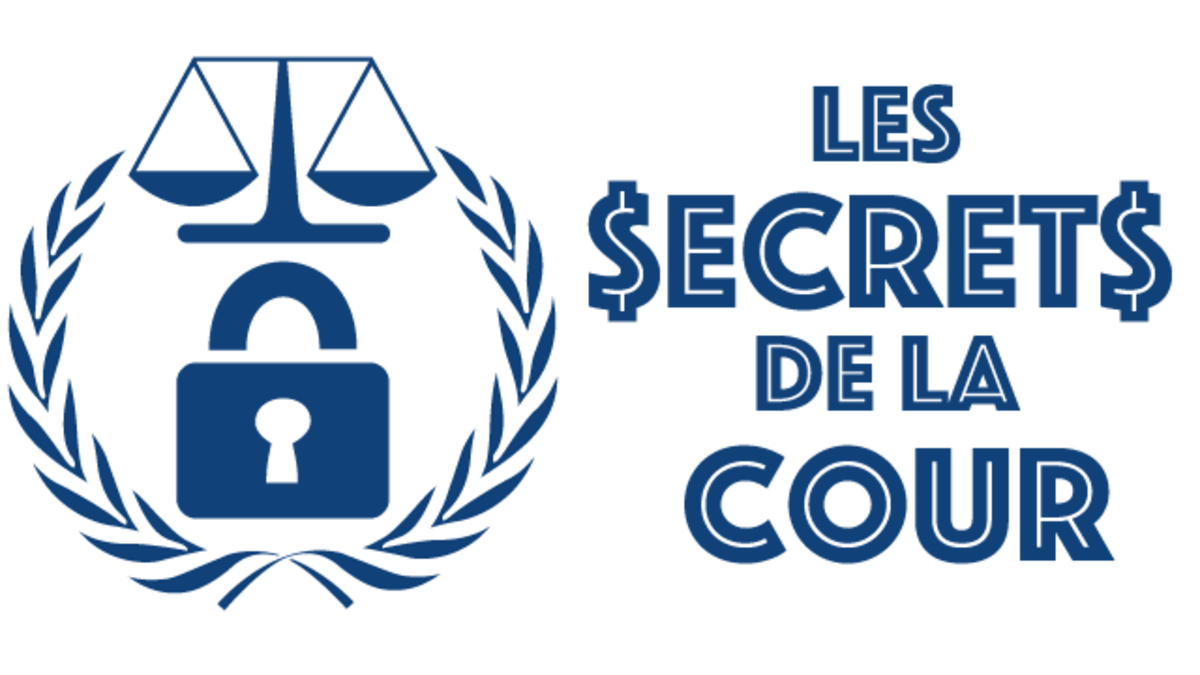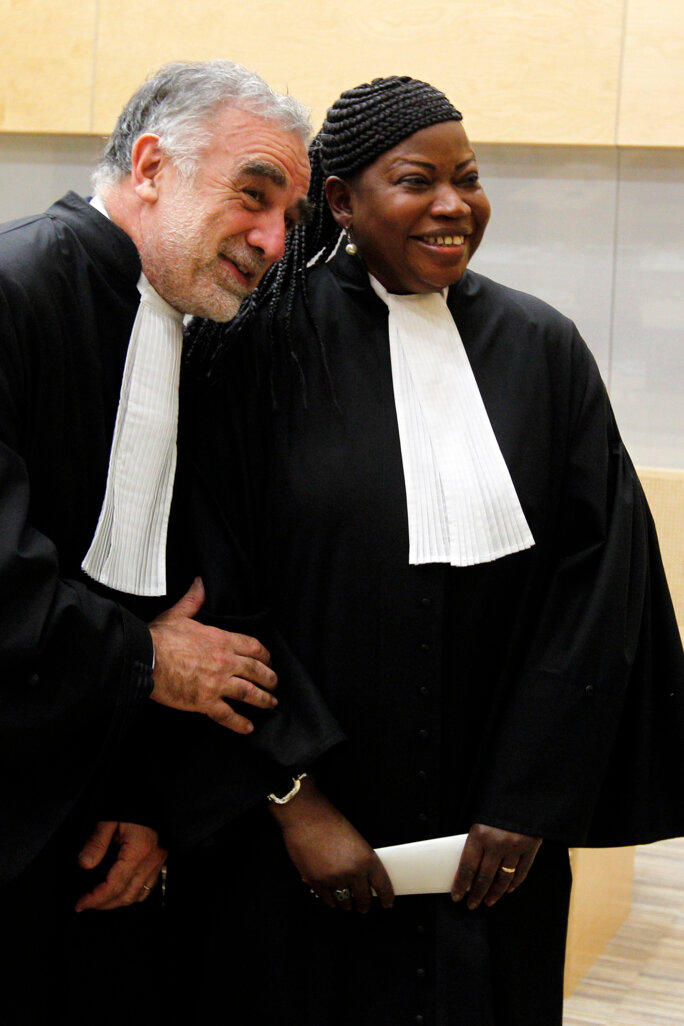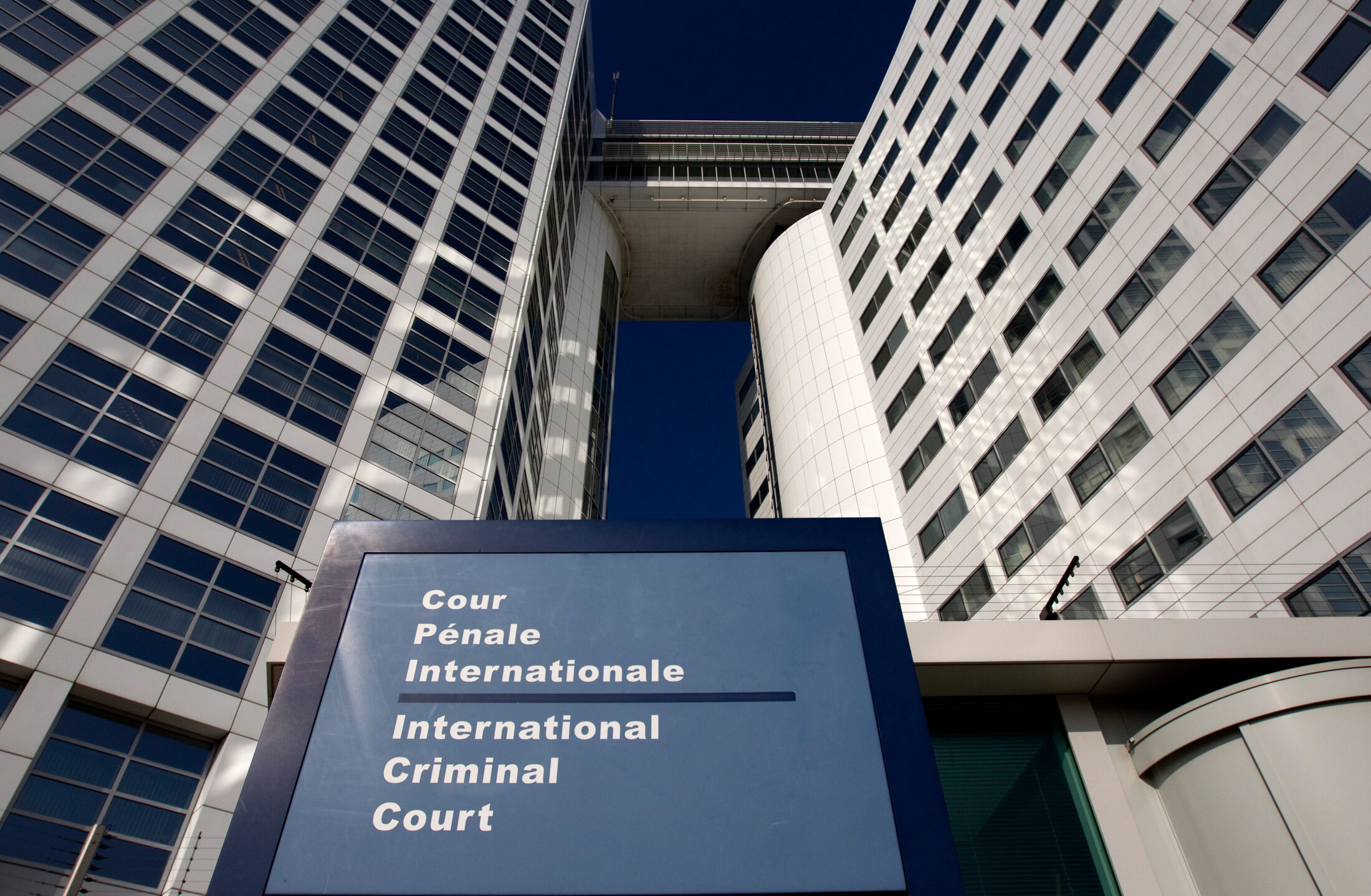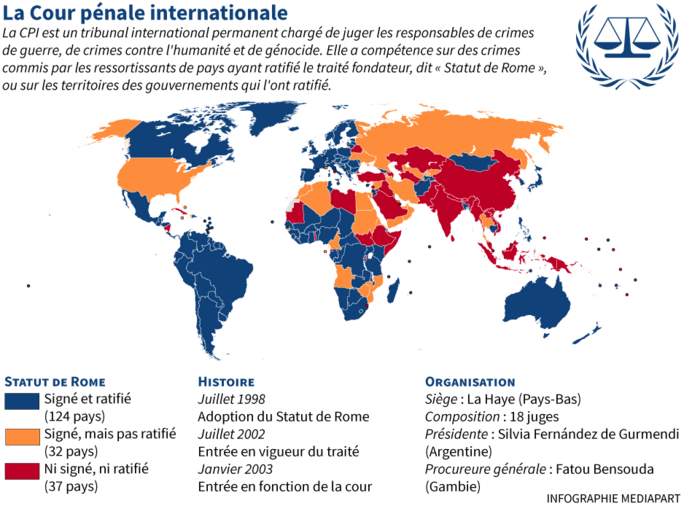It is the story of a prosecutor who dreamed of changing the world. For nine years Argentine lawyer Luis Moreno Ocampo was the face of the International Criminal Court (ICC). Following in the footsteps of the Nuremberg trials, the ICC was supposed to put an end to the immunity of perpetrators of genocide and those who commit crimes against humanity.

Enlargement : Illustration 1

The court is the ultimate instrument of peace created by the international community. Its founding treaty was negotiated during a diplomatic conference in Rome in 1998. Through membership of the ICC states de facto waive the immunity of their leaders for the most serious crimes. Africa, Latin America and Europe have embraced the idea, Israel, China and Russia have rejected it while the United States have fought it.
The ICC is not a supranational government or power. Through a subtle mechanism it encourages states to try suspects on their own soil, failing which it can intervene itself. The idea is that whether the case is heard before judges at The Hague where the ICC is based or in the courts of their own country, these major criminals must be brought to justice.
Luis Moreno Ocampo, who in 2003 became the first prosecutor at the ICC, laid the foundations for this. But rather than bedding down the institution with strong cases, to win convictions, he saw himself as a global minister of foreign affairs, on a crusade against those whom he himself had categorised as being among the forces of evil. In essence, his friends' enemies.

Enlargement : Illustration 2

Moreno Ocampo wanted to use all his might to change the world. He simply succeeded in tilting the International Criminal Court's balance, sowing profound doubts as to its impartiality and its independence, as this investigation, 'The Secrets of the Court', reveals.
For six months eight media organisations belonging to the European Investigative Collaborations (EIC) have analysed more than 40,000 documents obtained by Mediapart; diplomatics notes and cables, internal memos, correspondence and banking information. It is the biggest ever leak of documents concerning the international justice system. And they are damning.
'The Secrets of the Court' shows how ex-prosecutor Moreno Ocampo invested money in the worst tax havens in the world, undermined the confidentiality of cases and used the international public institution as private property; how, after he left The Hague, he interfered in cases being handled by his successor, Fatou Bensouda, and succumbed to conflicts of interest in respect of his former role.
Having left the ICC in 2012, Luis Moreno Ocampo joined the New York law firm Getnick & Getnick to develop its growing whistleblower practice. He also teaches at Harvard and is a consultant. The Argentine often refers to himself as the “first” ICC prosecutor rather than the “former” prosecutor, despite any confusion this might cause. In July 2017 the “first” ICC prosecutor was hired by the Organization of American States (OAS) to investigate the political crisis in Venezuela. It is not the first time he has been involved in this crisis. Two years ago he tried, unsuccessfully, to move forward the attempt by opponents to indict the Nicolas Maduro regime at the ICC.
Moreno Ocampo, who was once the lawyer for Argentine football legend Maradona, seems to have used the international justice system like a massive rigged football match whose results are fixed in advance.
'The Secrets of the Court' shows that:
- During the time that he was hunting down the worst criminals on the planet at the ICC – and after – Moreno Ocampo, who had been the director of Transparency International in Latin America, held offshore companies based in Panama and the British Virgin Islands.
- At the time of the post-election crisis in the Ivory Coast in 2010 and 2011, the prosecutor went along with moves by French officials seeking to remove Laurent Gbagbo from that country's political scene, to the point of building a case with no legal basis.
- Just after he had left the ICC in 2012 Luis Moreno Ocampo was active behind the scenes trying to get the charges of crimes against humanity against the president of Kenya Uhuru Kenyatta – which he had himself initiated – dropped.
- In 2015 the former prosecutor became the lawyer for Justice First, an organisation created by Libyan billionaire Hassan Tatanaki. According to documents obtained by Mediapart, Moreno Ocampo, who earned fees of 750,000 dollars, was supposed to get the businessman's “enemies” put on the UN sanctions list. And to put in place a strategy ensuring that he, Tatanaki, avoided any proceedings at the ICC.
- In the same year Moreno Ocampo took up the cause of the philanthropist banker Kerry Propper on behalf of the Yazidis, many of whom were hunted down and massacred or exploited by Islamic State in Iraq. The lawyer carried out lobbying at the ICC, using his contacts, paying officials and trying to force the prosecutor to take a stance on this issue.
A poisoned legacy

Enlargement : Illustration 3

Throughout all these affairs, during the nine-and-a-half years he was in office at the ICC and afterwards, Luis Moreno Ocampo employed the same method, in furtherance of his own vision of the world and his career. He created networks, whose precise political hue mattered little. He traded his title of the world's prosecutor for a bunch of friends who were part of the global jet set, from actress Angelina Jolie to eBay founder Pierre Omidyar.
In a Churchillian vision of the world, Ocampo wanted to take up his pen and write history, to be sure he was on the right side of it. For years the former prosecutor inspired books, articles and even works of fiction, going so far on occasions as to pay some journalists.
Yet the role of the ICC is not to change the world, favour regime change or take political actions, whether they favour peace or not. It is down to negotiators, mediators and diplomats to use the court's judgements in favour of peace. It is not down to the court's chief prosecutor to educate the planet hand in hand with Qatar, even if armed with the best intentions in the world. With each action that veered from the path of rendering justice, the ICC lost a little more credit. In this regard Moreno Ocampo's legacy still lingers. By choosing to elect as his successor someone who was his number two for eight years the member states, curiously, chose continuity, forgetting the court's mediocre record.

Enlargement : Illustration 4

Nonetheless Fatou Bensouda has overhauled her office and cautiously put some distance between herself and Moreno Ocampo, taking over the fiasco of the cases that were badly put together by her Argentine predecessor, including the case targeting six leading Kenyan figures, and she has resumed the investigation into Darfur, to avoid the case being thrown out should the president of Sudan Omar al-Bashir ever appear before the court. And the current prosecutor has opened an investigation into crimes committed during the Russia-Georgia war of 2008. Bensouda has also reopened preliminary inquiries (a step that precedes an investigation) on cases closed by Moreno Ocampo, targeting British troops on duty in Iraq and crimes committed in the occupied territories of the West Bank and Gaza.
From the start it was obvious that the ICC would have to endure pressures. Its targets are war lords, government ministers and heads of state, who have been stripped of their immunity and whose lives would be laid bare in any future trial. These defendants' past allies also risk suffering collateral damage in such trials. The court's prosecutor thus has to walk a tightrope. They must get fully engaged with the politics, which is an inherent part of the job, but without losing sight of their mission: to investigate and pursue. And without compromising their principles of independence and impartiality.
Luis Moreno Ocampo too often lost the sense of the direction that the court should have followed, damaged the trust of the parties involved, and gave ammunition to its detractors. Already we have seen numerous African leaders opposed to the ICC, using arguments handed to them by Moreno Ocampo. Tomorrow it will be the United States, Israel and Russia. To succeed, the court has the force of law behind it; and nothing else.
----------------------------------------------------------------------------
- The French version of this article can be read here.
English version by Michael Streeter


